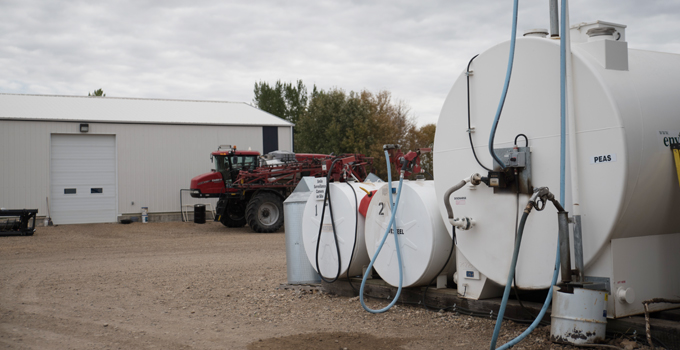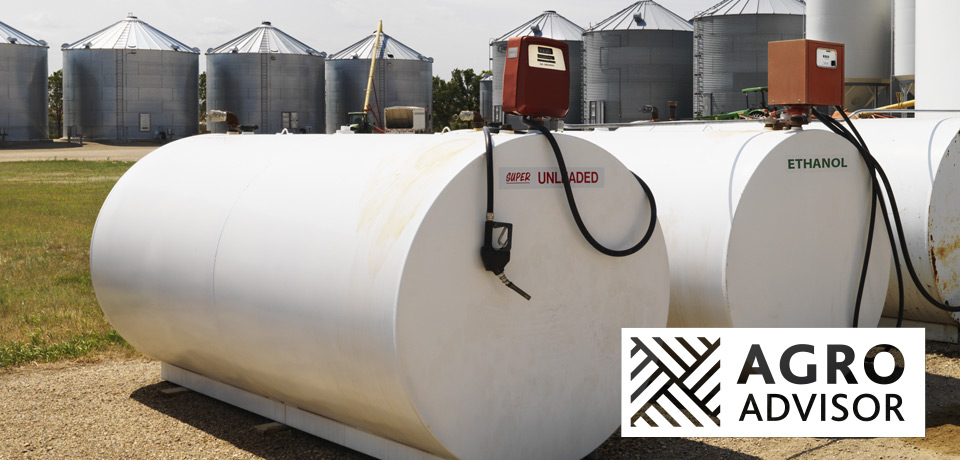Maintaining your equipment is key to keeping your farm operating and productive. Machinery is regularly inspected, maintained and replaced, but what about the fuel tanks that you refuel, year after year?
These tanks have a long lifespan but often get overlooked when it comes to service checks. Did you know that an outdated or unserviced fuel tank can contaminate your fuel and potentially damage equipment?
The newer your machinery, the more sensitive it is to dirty fuel. The technology that allows equipment to run more efficiently and for longer hours has resulted from more stringent emissions requirements.
The new, high-efficiency motors require cleaner fuel and also rely heavily on technologically advanced filters to snag any foreign debris from entering the system. Dirty fuel in today’s machinery will plug the filter — or worse yet, damage the engine’s injection system. Excessive water in your fuel can invoke rusting and
corrosion, resulting in costly repairs.
Damaged machinery can mean big headaches and expensive repairs. Experts from Co-op’s Fuel Team recommend integrating fuel cleanliness standards into your overall handling and storage approaches. This involves filtering the fuel as it leaves the storage tank and before it enters your machinery.
Fuel handling and storage directly affects the quality of your fuel. Tanks that are not regularly serviced or repaired allow contaminants (such as water, sediments and rust) to invade and deteriorate fuel. Co-op fuels feature exceptional quality – the delivery and transfer is managed by trained professionals who ensure the product entering your tanks is clean.

Reduce downtime from dirty fuel:
- At minimum, commit to checking for contamination in your fuel twice a year.
- Regularly inspect tanks, hoses, gauges, caps, etc. to ensure they are not worn and in need of replacing.
- Consider upgrading your storage tanks. Water can enter your tank through cracks or via condensation. Modern equipment, such as double-walled tanks, not only keep your fuel safer but are also faster to fill and easier to maintain.
- Locate your fuel storage systems out of direct sunlight. Purchase only high-quality fuels, such as Co-op’s High Performance or Premium Diesel that deliver reliability and long-lasting burn time.
- After harvest, fill your machines’ tanks before storage to prevent condensation from accumulating.
- Replace fuel filters regularly to avoid damage from excessive moisture buildup.
- Keep your fuel tanks topped up with regular fills from your retail co-op.
Technology and products that help monitor your fuel levels and integrity can keep your production schedule on track and reduce downtime. Speak to a member of your local Co-op Fuel Team for products and services that will keep your fuel clean and equipment running at peak performance.
What to watch for
If you notice a significant drop in pressure when refuelling your machinery, check the dispensary filter — if it’s clogged, it will reduce the flow.
Keep fuel clean
One dispensary filter can clean between 50,000 to 100,000 gallons of fuel before replacement, as long as no contamination occurs during storage.

